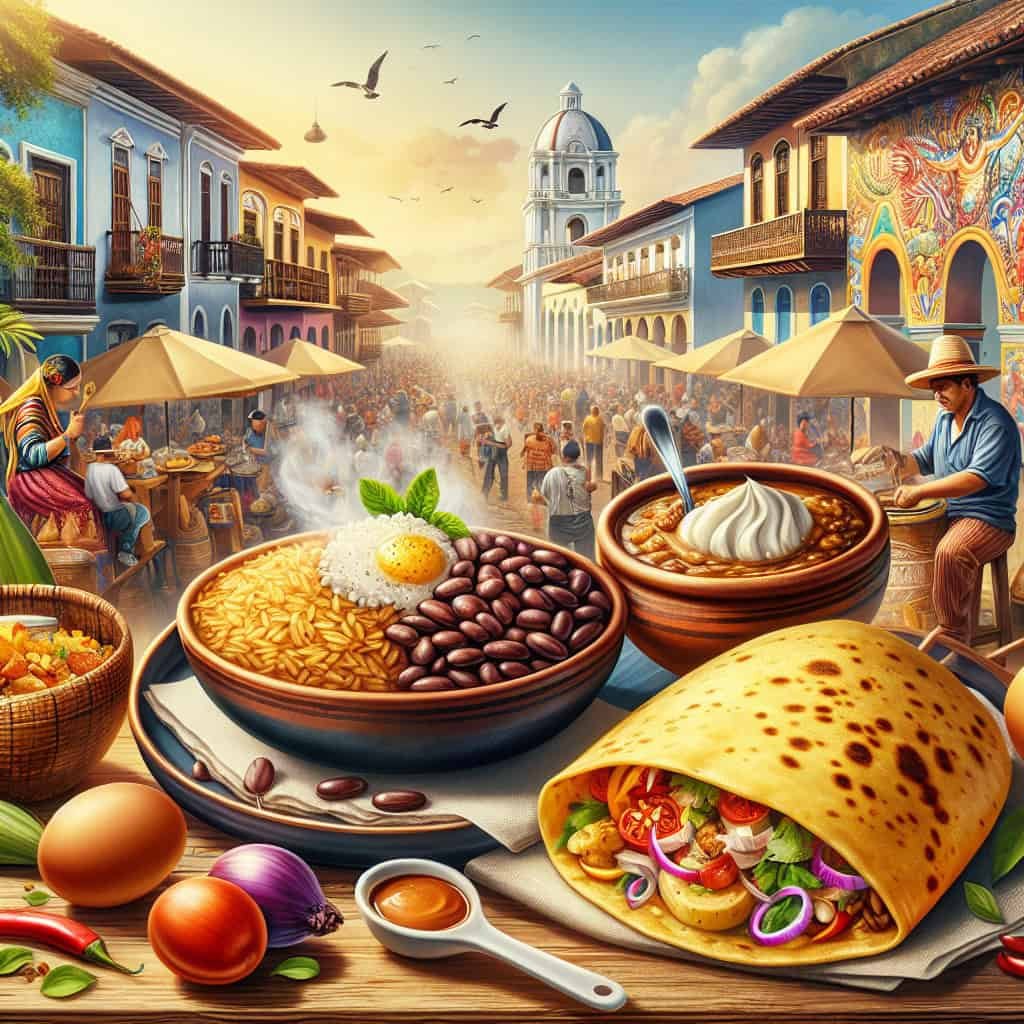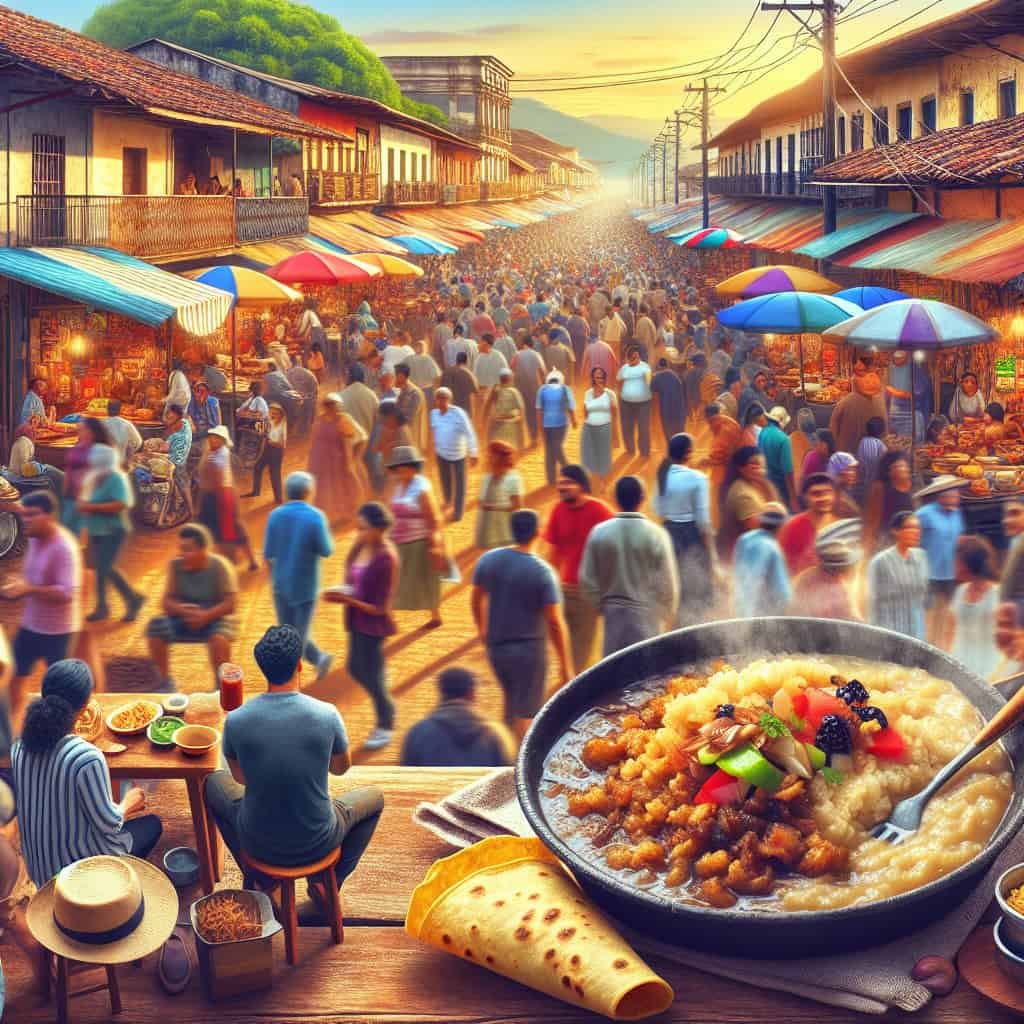If you’re planning a trip to Nicaragua and want to fully experience the flavors and culture of the country, sampling the local street food is a must. From crispy tacos to mouthwatering quesillos, Nicaraguan street food offers a plethora of delicious options. However, it’s important to ensure that you’re taking the necessary precautions to enjoy these delicacies without risking any health issues. In this article, we will provide you with essential street food safety tips that will allow you to indulge in Nicaraguan delicacies worry-free. So, get ready to embark on a culinary adventure as we guide you through the dos and don’ts of eating street food in Nicaragua.
Choosing a Vendor
When it comes to enjoying street food in Nicaragua, one of the first things you should do is choose a vendor that maintains clean and organized food stalls. This is an excellent indication of the vendor’s commitment to hygiene and quality. Look for stalls that are well-maintained, with clearly labeled and stored ingredients. A tidy and well-organized food stall is more likely to prioritize cleanliness and provide safe and delicious food for you to enjoy.
In addition to the cleanliness of the stall itself, it’s essential to observe the vendor’s hygiene practices. Watch how the food is handled and prepared. Are the vendors wearing gloves or using utensils to avoid direct contact? Do they have access to clean water for washing their hands and utensils? These are crucial aspects to consider as they reflect the vendor’s commitment to food safety. By choosing a vendor who prioritizes hygiene, you are taking a significant step towards ensuring the safety of your street food experience.
Another important factor to consider when choosing a vendor is the quality and freshness of the ingredients they use. Take a moment to inspect the ingredients on display. Are the fruits and vegetables fresh and well-washed? Avoid vendors who use wilted or spoiled produce, as these can be signs of a lack of sanitation or care. Additionally, pay attention to the quality of the meat and seafood. Opt for vendors who source their ingredients from reputable suppliers and avoid consuming raw or undercooked meat and seafood, as these can pose health risks.
Inspecting the Food
Once you have chosen a vendor, it’s crucial to thoroughly inspect the food before consuming it. Start by checking if the food is hot and cooked through. This is especially important for dishes such as meat, poultry, and seafood. Food that is cooked at high temperatures helps kill harmful bacteria and ensures your safety. If the food appears lukewarm or undercooked, it’s best to ask the vendor to heat it thoroughly before serving.
It’s also important to avoid consuming raw or undercooked meat and seafood. While these may be popular delicacies in some cultures, they can pose significant health risks due to the potential presence of harmful bacteria and parasites. Your best bet is to choose vendors who cook their meat and seafood thoroughly. By opting for cooked options, you minimize the risk of foodborne illnesses and can enjoy your street food experience with peace of mind.
Additionally, ensure that fruits and vegetables are properly washed before consumption. Raw produce can sometimes contain traces of dirt, pesticides, or other contaminants. To reduce the potential risk, choose vendors who take the time to thoroughly wash their fruits and vegetables. This simple step helps remove any harmful substances and ensures that you can safely enjoy the flavors of Nicaraguan street food.

Considering Crowd and Turnover
When selecting a street food vendor, it’s worth considering the crowd and turnover at their stall. It’s generally a good sign if you notice a steady stream of customers at a particular stall. This indicates that the vendor has established a loyal customer base who trust the quality and safety of their food. On the other hand, vendors with slow turnover may not be as reliable, and the food may have been sitting out for longer periods, increasing the risk of contamination.
By opting for stalls with a steady stream of customers, you can have more confidence in the quality and safety of the food being served. The popularity of a vendor is often a testament to their delicious offerings and adherence to food safety standards. So, keep an eye out for stalls that attract a considerable crowd and enjoy your street food experience with peace of mind.
Looking for Local Recommendations
One of the best ways to ensure a safe and enjoyable street food experience in Nicaragua is to seek out recommendations from locals or experienced travelers. The locals know the best spots and are familiar with the vendors who consistently provide tasty and safe food. Strike up a conversation with the locals and ask about their favorite street food vendors. They will be more than happy to share their knowledge and guide you to the best culinary delights in the area.
You can also consult online platforms and food blogs for suggestions. These sources often provide valuable insights into the local street food scene and can offer recommendations based on personal experiences. Look for trusted platforms and bloggers who have established themselves as reliable sources of information. By combining local recommendations and online research, you can create a curated list of street food vendors to explore and savor.

Avoiding High-Risk Foods
To ensure the safety of your street food experience, it’s crucial to avoid high-risk foods. Unpasteurized dairy products and sauces can be potential sources of foodborne illnesses, as they may contain harmful bacteria. It’s best to steer clear of these products unless you are certain of their safety. Opt for vendors who use pasteurized dairy products or skip them altogether to minimize any potential risks.
Additionally, it’s essential to avoid consuming food that has been sitting out for a long time. Food left at room temperature for extended periods provides an ideal breeding ground for bacteria. These bacteria can multiply rapidly and cause foodborne illnesses when consumed. Choose vendors who prepare food fresh upon order and avoid dishes that have been pre-prepared and left out for prolonged periods.
Seafood and shellfish can also be high-risk foods due to the potential for contamination. If you choose to indulge in these delicacies, make sure they are sourced from reputable suppliers and cooked thoroughly. Raw or undercooked seafood can carry harmful bacteria and parasites that may cause severe illnesses. By being cautious with seafood and shellfish, you can enjoy their flavors while minimizing any potential risks.
Paying Attention to Sanitary Practices
When it comes to street food safety, paying attention to sanitary practices is crucial. Watch how the food is handled and prepared by the vendor. Are they using clean utensils and cooking equipment? Dirty or unclean equipment can introduce harmful bacteria into the food, increasing the risk of foodborne illnesses. Choose vendors who prioritize cleanliness and sanitization in their food preparation processes.
Additionally, ensure that the vendor has access to clean water for washing their hands and utensils. Clean water is essential for maintaining proper hygiene and preventing the spread of germs and bacteria. Observing the availability of clean water is an essential aspect of ensuring the safety of the street food you consume. By choosing vendors who have access to clean water, you can reduce the risk of contamination and enjoy your street food with peace of mind.

Checking Allergen Information
If you have any dietary restrictions or allergies, it’s essential to inquire about potential allergens in the food. Many street food vendors will be able to provide information on common allergens such as nuts, gluten, or dairy in their dishes. By asking about allergens, you can make informed choices and avoid any potential allergic reactions.
Don’t hesitate to inform the vendor about your dietary restrictions or allergies. They will often be accommodating and may provide alternative options or make adjustments to the dish to suit your needs. By effectively communicating your dietary needs, you can enjoy the flavors of Nicaraguan street food while ensuring your safety and well-being.
Staying Hydrated and Using Bottled Water
Staying hydrated is crucial when indulging in street food adventures. The warm climate of Nicaragua can make you more susceptible to dehydration, so it’s essential to drink plenty of water. However, it’s important to be cautious about the source of the water you consume.
Tap water may not always be safe for consumption in certain areas, so it’s best to opt for bottled water when it comes to drinking and cleaning utensils. Bottled water provides a reliable and safe source of hydration, ensuring that you stay refreshed and hydrated during your street food exploration. Look for sealed bottles from reputable brands to ensure its quality and authenticity.

Being Mindful of Food Storage and Temperature
When enjoying street food in Nicaragua, it’s essential to be mindful of food storage and temperature. Avoid consuming food that has been left uncovered or exposed to flies. Flies can carry bacteria and contaminate the food they land on. Choose vendors who store their food properly, covering it to protect against flies and other external factors.
In addition to storage practices, it’s important to ensure that meat and dairy products are kept at a safe temperature. Proper refrigeration is necessary to prevent the growth of harmful bacteria. Avoid vendors who keep perishable foods at room temperature for extended periods. If the meat or dairy products appear warm or have an unusual odor, it’s best to avoid them to minimize any potential health risks.
Listening to Your Intuition
While it’s important to consider all the safety tips mentioned above, ultimately, it’s essential to trust your instincts when it comes to consuming street food. If something seems off or unsafe, it’s better to err on the side of caution and skip it. Your intuition can often guide you in making the right decisions to protect your health and well-being.
If you come across a questionable-looking stall or have doubts about the food, it’s best to trust your instincts and move on. There are numerous street food vendors available, and you can always find another option. By listening to your intuition and avoiding any doubtful situations, you can ensure a safe and enjoyable street food experience in Nicaragua.
In conclusion, by following these street food safety tips, you can savor the delicious Nicaraguan delicacies while minimizing the risks of foodborne illnesses. Choose vendors with clean and organized stalls, observe hygiene practices, and ensure the quality and freshness of ingredients. Consider the crowd and turnover of vendors, seek local recommendations, and avoid high-risk foods. Pay attention to sanitary practices, check allergen information, and stay hydrated with bottled water. Be mindful of food storage and temperature, and above all, trust your instincts. By taking these precautions, you can embark on a street food adventure in Nicaragua with confidence, enjoying the flavors and delights of this vibrant cuisine.

